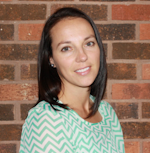Upon learning more, I found out that the transition to collaborative practice wouldn't be as straightforward as I thought. But getting in touch with another hygienist has inspired me to keep on pursuing my dream.
Last time I wrote, I stated that the idea of practicing in nursing homes has been with me since I was in hygiene school, approximately six years or more. So, with all that time thinking about it, what do I have for a plan to get it going? Great question!
Unfortunately the answer is . . . nothing.
I don’t have a plan, and this looks like a huge undertaking in front of me. It reminds me of being in hygiene school again, when the instructors warned us about an upcoming case presentation, and it takes most of the semester to find your patient. What follows is a mad dash to put together the presentation, tears over failed attempts, and finally a presentation that we could feel good about. While I don’t have a deadline for this particular project, I do feel like I have procrastinated a bit. The truth is, even though it has been on my mind, a part of me didn’t ever see myself leaving my full time clinical job.
Here I am, with ample time on my hands to put forth the effort and surge ahead with any idea that may come to mind. Where to start? I contacted my state’s dental hygiene association and requested any information on the collaborative agreement and contact information for anyone who had experience in this field.
What I received was a golden phone number, that of one single hygienist, Pat. She lived across the state and was in a collaborative agreement with her dentist and working in a nursing home. With limited information on how this would play out, I left a message indicating my interest in learning from her about how she began her journey. She called me back and has provided me with direct, honest, and encouraging information. To be completely frank, without her encouragement and motivation I am not sure I would have continued to pursue this with as much enthusiasm. She has endured phone calls and text messages from me, invited me in on conference calls to learn more, and also gave me a dose of reality.
Reality? Well, I have been enjoying a full-time hygienist’s wage for the past six years. Yes, I am working part-time, but I was really hoping that picking up a collaborative agreement would make up the difference. My honest mentor brought me down out of the clouds. It turns out that there are a lot of logistics to consider, such as who handles the billing, who orders supplies, and how much the hygienist is paid. All good questions, and all those answers will differ depending on the hygienist and dentist.
Pat has worked out an agreement with her dentist that she will be paid 50% of the fees collected from the services she provides. Initially that does not sound like a bad plan, but then we have to look at the method of payment. Some of the nursing home residents are private pay, some have Medicare (which we know does not have any decent routine dental coverage), some may have private insurance, and some have Medicaid. So, just as insurance and finances dictate a patient’s acceptance of care in private practice, they will also affect a nursing home resident’s acceptance as well. If you have ever dealt with Medicaid payments, you know that they may not be comparable to what the actual fee for service is. You can do the math, depending on what type of insurance is needing to be submitted or if it is private pay, how much potential income could be made on one appointment. The other factor to consider is the demand—initially it won’t be that great. Pat advised me that in one single nursing home she may only work there providing care one to two days per month.
The income potential is not quite what I had initially imagined, but that is OK. I have confidence that eventually this will become standard care in many types of facilities and that will open more doors for our profession, which will include more income opportunities as well. Pat reassured me that all will be well and she reminded me that I won’t be pursuing this to make a lot of money, but simply “out of the goodness of your heart.” That statement has reinforced that initial pull of needing to do something for those that are unable to gain access to care, and it will continue to carry me through every letter I write, every facility meeting, every phone call that I make.
Previous columns by Amy Ericks
‘I hope to end up in a nursing home’: Dental hygiene career alternatives
Amy Ericks, RDH, BSDH, is currently transitioning offices and preparing to pursue a dream. She graduated from the University of Wyoming in 2010 with an Associate of Applied Science in dental hygiene. Five years of experience, two houses, one more child, and several internet classes later, she graduated with a Bachelor of Science in dental hygiene. She is excited to share her journey.
Editor's note: This article first appeared in RDH eVillage. Click here to subscribe.








